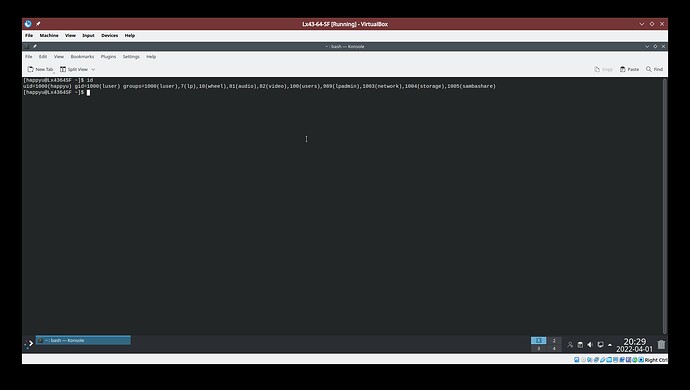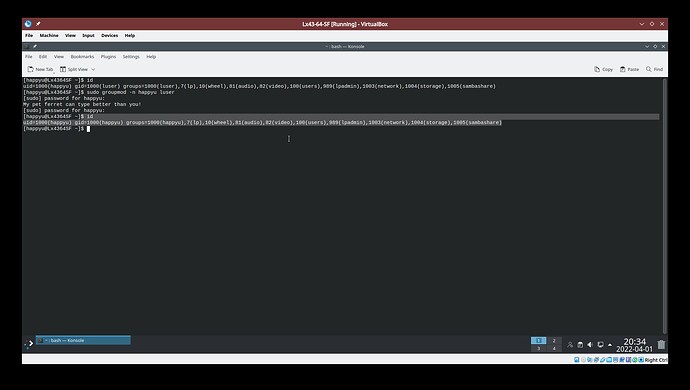A few days ago I installed OMa 4.3 on an external drive, because I have good memories of Mandrake, Mandriva and Mageia. At the moment my system is Linux Mint XFCE, because my computer is ten years old. OMa looks beautiful with Plasm5. To my surprise my UID is 1001 and GID is 1006 instead of both being 1000.Why is this? It makes communication with other installations more difficult. The group 1006 has the name of “lusers” instead of being the same as my user name. Why is this?
I had a look at users and groups and found empty and unused non-system groups with GIDs 1002, 1003, 1004 and 1005. Why is this?
Dolphin is very restrictive when I want to use it as root. Very irritating. How can I get my freedom to use it as root in the same way as when I use it as user, without dolphin being patronizing?
When I open “discover” a slow updating process starts every time, even if I start the program twice, with less than a minute in between.
I tried to install Libreoffice 7.3.1 after downloading the rpm-version from libreoffice.org. I tried to install via “urpmi .rpm" as root. It did not work. Some program “glob” does not know the meaning of a "” in “urpmi *.rpm”. Why has it been made impossible to use standard conventions in bash? When I finally got it installed, it did not open, some file is missing, or has got an unexpected name. I do not know what is wrong. The rpm-version 2.6. installed correctly.
Normally flatpak programs update automatically, the flatpak version of Libreoffice however had to be updated manually today via “Discover”, to which I have added the flathub repository.
Questions, questions, questions. I do not know whether my exectations are wrong, or this new version has a few glitches.
Apart from these conundrums Openmandriva is a beautiful distro, My brother wants to install it instead of an older Rosalinux installation. For this he will need my help. This is why I hope your nswers to my questions will solve the problems.
Greetings
Erik

